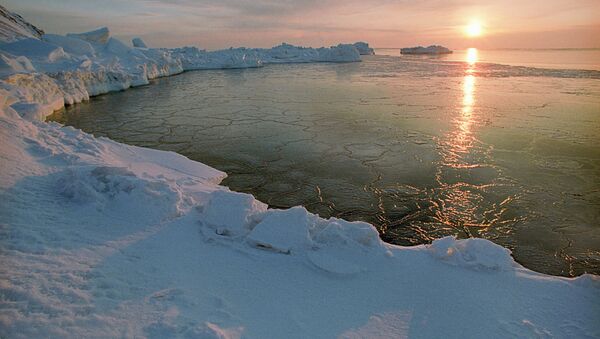"Our country, an important player in the matters of the North Pole, will promote science and technology, which are our strengths. [We] need to actively play a leading role in global processes related to the Arctic," Abe was quoted by the Kyodo news agency as saying.
The Japanese government's program on Arctic development was adopted earlier in the day. It outlines the country's planned involvement in the development of maritime routes in the region, as well as mineral extraction.
The document also reflected Japan's concern that development of the north could lead to new tensions between states with interests in the region.
Within the last two decades, the Arctic has become the focus of increased international attention.
The region is considered to be a major source of hydrocarbons, minerals, fresh water and fish. The region's resources are a matter of particular interest for countries bordering the area, primarily the countries of the Arctic Council, including Canada, Denmark, Greenland, Finland, Iceland, Norway, Russia, the United States and Sweden.
In recent years, the Japanese authorities have been paying attention to the Arctic as well. In 2009, Japan officially submitted an application for Permanent Observer status to the Arctic Council. Later, Japan started to engage more deeply in international policy in the Arctic, at both a ministerial level and at the level of research organizations.



